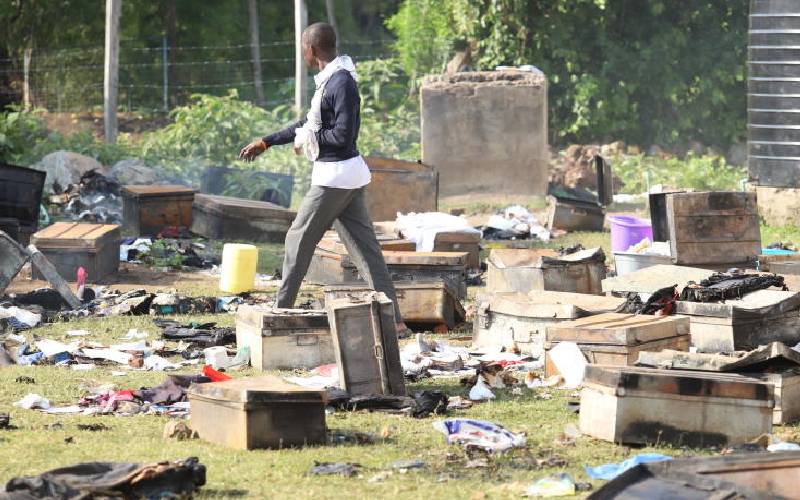×
The Standard e-Paper
Fearless, Trusted News

A student walks in between burnt school boxes on January 20, 2019, after a fire gutted down one of the dormitories at Awasi Secondary school in Kisumu county. [Denish Ochieng, Standard]
When schools sent us home last year over the Covid-19 pandemic, we were forced to live in unfamiliar grounds with thieves, con men, drug dealers, paedophiles and all sort of evils one can think off.